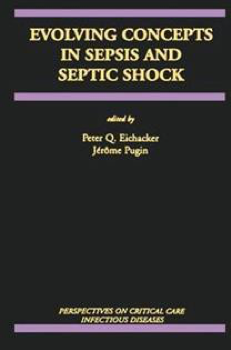
Peter Eichacker, MD. Dr. Eichacker is an intensivist, pulmonologist, senior researcher and head of a critical care medicine section in Washington, DC. He earned his undergraduate degree from Boston University Summa Cum Laude, and his medical degree from New York University. After a residency and chief residency in internal medicine, he completed a fellowship in pulmonary medicine at Bronx Municipal Hospital Center and the Hospital of the Albert Einstein College of Medicine in New York. He then completed a clinical and research fellowship in critical care medicine. Dr. Eichacker was commissioned and was a captain in the U.S. Public Health Service. His medical certifications have included: Diplomat of the National Board of Medical Examiners, Internal Medicine, Pulmonary Medicine, and Critical Care Medicine.
Dr. Eichacker has practiced internal, critical care and pulmonary medicine for more than 40 years. He is an intensivist who specializes in diagnosing, treating and supporting patients with sepsis, multiple organ dysfunction and other serious conditions in the Department of Critical Care at Providence Hospital in Washington DC and other hospital in the area. His primary research interests have been the pathogenesis and the treatment of septic shock and sepsis-induced lung injury related to commonly encountered types of bacteria as well as the less-common anthrax bacterium His research has provided critical insights into key factors influencing the effectiveness of immunomodulatory agents in the treatment of sepsis.
Dr. Eichacker’s research in the area of septic shock related to anthrax infection and the models he has developed to do that research are unique. This work has been instrumental in providing a basis for the inclusion of anthrax toxin directed antibody therapies in the Strategic National Strategic. Eichacker serves as a consultant to the National Institute of Allergy and Infectious Diseases (NIAID), the FDA, and CDC on issues pertaining both to the treatment of sepsis in general and anthrax in particular.
Dr. Eichacker’s research has also been directed at critically evaluating the quality of the evidence used to support efforts within the critical care community to standardize the treatment of all septic patients with uniform bundles of care. This research has also been directed at assessing the Center for Medicare and Medicaid service’s efforts to standardize sepsis care nationally with a Severe Sepsis and Septic Shock Performance Measure.
Selected Peer-Reviewed Publications (most recent first)
- Steroid Treatment Improves Survival In Rats Challenged With B. Anthracis Cell Wall Peptidoglycan But Selective TNF Inhibition Does Not. Manuscript in preparation.
- A Systematic Review and Meta-Analysis Of Preclinical Studies Examining The Influence Of Obesity On Outcome In Models Of Bacterial And Viral Infection. Manuscript submitted. 2019.
- Antibiotic And Fluid Focused Bundles Potentially Improve Sepsis Management: But High- Quality Evidence Is Lacking For The Specificity Required in SEP-1. Critical Care Medicine (2019)
- Anthracis Lethal Toxin but Not Edema Toxin, Increases Pulmonary Artery Pressure And Permeability In Isolated Perfused Rat Lungs. American Journal of Physiology- Heart and Circulatory Physiology ( 2019)
- Does Obesity Protect Against Death In Sepsis? A retrospective cohort study of 55,0388 adult Critical Care Medicine (2019)
- Endorsing performance measures is a matter of trust. BMJ [British Medical Journal]. (2018)
- Evidence Underpinning the Centers for Medicare & Medicaid Services’ Severe Sepsis and Septic Shock Management Bundle (SEP-1): A Systematic Review. Annals of Internal Medicine. (2018)
- A systematic Review And Meta-Analysis Of Preclinical Trials Testing Anti-Toxin Therapies For B. Anthracis Infection: A Need For More Robust Study Designs And Results. PLoS One. 2017
- Increased BMI and Adjusted Mortality in ICU Patients With Severe Sepsis Or Septic Shock: A Meta-Analysis. Critical Care (2016)
- Toxin Directed Therapies For The Management Of Anthracis Associated Infection And Sepsis. Expert Opinion on Investigational Drugs (2015)
- Tidal Volume and Plateau Pressure Use for Acute Lung Injury from 2000 to Present: A Systematic Literature Review. Critical Care Medicine (2014)
- Late treatment with a protective antigen-directed monoclonal antibody improves hemodynamic function and survival in a lethal toxin-infused rat model of anthrax Journal of Infectious Diseases. (2005)

